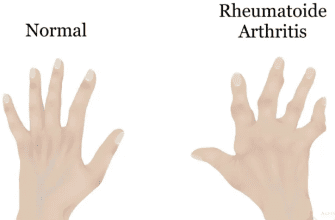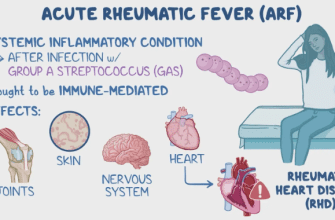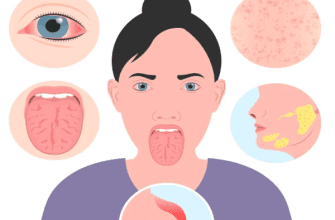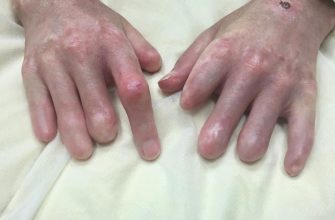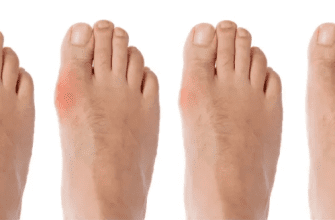Sexually transmitted infections (STIs), or sexually transmitted diseases (STDs), are infections primarily spread through sexual contact (vaginal, anal, oral). Some can also be transmitted through blood, from mother to child during childbirth, or via shared hygiene items.
- How Do You Get STIs?
- What Types of STIs Exist?
- 1. Bacterial Infections (Curable with Antibiotics)
- 2. Viral Infections (Not Curable, but Manageable)
- 3. Fungal & Parasitic Infections
- How to Prevent STIs?
- What to Do If You Suspect an STI?
- Who Should You See?
- Asymptomatic Infections
- Common STI Myths
- Long-Term Risks of Untreated STIs
- Emergency Prevention After Unprotected Sex
- Psychological Impact
- Talking to Partners About STIs
How Do You Get STIs?
Main transmission routes:
- Sexual contact (unprotected vaginal, anal, or oral sex).
- Blood contact (e.g., sharing needles, razors, or unsterilized tattoo tools).
- Vertical transmission (mother to child during pregnancy or birth).
- Household transmission (rare, but possible through shared towels, razors, or toothbrushes if contaminated with infected fluids).
What Types of STIs Exist?
STIs can be bacterial, viral, fungal, or parasitic.
1. Bacterial Infections (Curable with Antibiotics)
- Gonorrhea – causes pus-like discharge, painful urination.
- Syphilis – starts with sores (chancres), then rash; late stages affect the nervous system.
- Chlamydia – often asymptomatic; can lead to infertility.
- Mycoplasmosis & Ureaplasmosis – cause urinary/genital inflammation.
2. Viral Infections (Not Curable, but Manageable)
- HIV – weakens the immune system, leading to AIDS.
- Herpes (HSV-2) – causes painful genital blisters.
- Human Papillomavirus (HPV) – some strains cause genital warts or cervical cancer.
- Hepatitis B & C – affect the liver; spread via blood and sex.
3. Fungal & Parasitic Infections
- Candidiasis (Yeast Infection) – itching, white discharge.
- Trichomoniasis – frothy discharge with a foul odor.
- Pubic Lice (Crabs) – itching, visible parasites in pubic hair.
How to Prevent STIs?
- Use condoms (even for oral sex).
- Get tested regularly, especially with new partners.
- Avoid sharing needles, razors, or toothbrushes.
- Get vaccinated (HPV, Hepatitis B).
- Limit casual sex or ensure your partner is STI-free.
What to Do If You Suspect an STI?
- Stop sexual activity to avoid spreading infection.
- Don’t self-treat – this can mask symptoms and delay diagnosis.
- See a doctor immediately (dermatovenereologist, gynecologist, urologist).
- Get tested (swabs, blood tests, PCR).
- Notify your partner(s) so they can get tested too.
Who Should You See?
- Dermatovenereologist (STI specialist).
- Gynecologist (for women).
- Urologist (for men).
- Infectious disease specialist (for HIV/hepatitis).
Asymptomatic Infections
Many STIs (e.g., chlamydia, HPV, early HIV) show no symptoms. You could be infected for years without knowing, spreading it to partners.
- Get tested every 6–12 months, even if you feel fine.
- After unprotected sex, wait 2–4 weeks (incubation period) before testing.
Common STI Myths
❌ “Condoms provide 100% protection” – They reduce risk but don’t block skin-to-skin infections (herpes, syphilis, HPV).
❌ “You can get STIs from pools/toilets” – Most STIs die quickly outside the body; household transmission is rare.
❌ “Oral sex is safe” – Gonorrhea, syphilis, HPV, and herpes can spread via oral contact.
Long-Term Risks of Untreated STIs
- Infertility (chlamydia/gonorrhea cause fallopian tube blockages in women, sperm duct issues in men).
- Cancer (HPV can cause cervical, anal, or throat cancer).
- Organ damage (syphilis attacks the nervous system; hepatitis destroys the liver).
- Pregnancy complications (miscarriages, infections in newborns).
Emergency Prevention After Unprotected Sex
If exposed (condom broke, partner has an STI):
- Within 2 hours: Wash genitals with Miramistin or Chlorhexidine (reduces but doesn’t eliminate risk).
- Within 72 hours (HIV risk): Take PEP (Post-Exposure Prophylaxis) – antiretroviral drugs (prescribed by a doctor).
- After 2–4 weeks: Get tested (PCR for STIs, blood tests for syphilis/HIV/hepatitis).
Psychological Impact
- Fear and shame prevent people from seeking help. Remember: STIs are a medical issue, not a moral failing.
- If diagnosed (e.g., HIV/herpes), seek counseling or support groups.
Talking to Partners About STIs
- Discuss status before sex: “When were you last tested?”
- If positive, inform partners honestly (doctors can help notify them anonymously).
- Avoid blame – focus on joint treatment.

